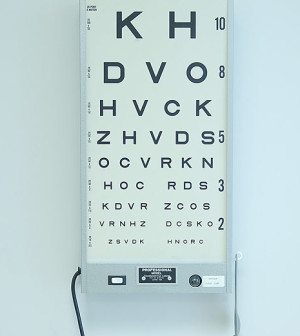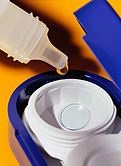- Are You Making This Expensive Thermostat Error This Winter?
- Recognizing the Signs of Hypothyroidism
- 10 Strategies to Overcome Insomnia
- Could Artificial Sweeteners Be Aging the Brain Faster?
- Techniques for Soothing Your Nervous System
- Does the Water in Your House Smell Funny? Here’s Why
- Can a Daily Dose of Apple Cider Vinegar Actually Aid Weight Loss?
- 6 Health Beverages That Can Actually Spike Your Blood Sugar
- Treatment Options for Social Anxiety Disorder
- Understanding the Connection Between Anxiety and Depression
Bacteria May Survive Longer in Contact Lens Solution Than Thought


Bacteria that can cause serious eye infections are able to survive longer in contact lens cleaning solution than previously known, a new study finds.
Researchers looked at different strains of Pseudomonas aeruginosa, which can cause microbial keratitis. This is an inflammation and ulceration of the cornea that can cause vision loss.
The investigators tested nine strains of P. aeruginosa gathered from hospital patients in Britain and compared them to P. aeruginosa strain 9027, which is the standard one used in tests by makers of contact lens disinfectant solutions.
Most of the strains were killed within 10 minutes after being placed in the contact lens solution, a result comparable to strain 9027. However, strain 39016 — which causes more severe cases of keratitis with a longer healing time — survived in the solution for more than four hours.
The findings, scheduled for presentation Wednesday at a Society for General Microbiology meeting in Liverpool, England, suggest that tests of contact lens solutions should determine if they can kill all P. aeruginosa strains, the University of Liverpool researchers said.
“Microbial keratitis can be devastating for a patient — it is important that the risk of developing this condition is reduced in contact lens wearers by improving contact lens disinfectant solutions,” study leader Craig Winstanley said in a society news release.
Because this study was presented at a medical meeting, it should be viewed as preliminary until published in a peer-reviewed journal.
Each year in the United Kingdom, there are about 6,000 cases of microbial keratitis, the news release noted.
More information
The American Academy of Ophthalmology has more about contact lens-related eye infections.
Source: HealthDay
Copyright © 2026 HealthDay. All rights reserved.










